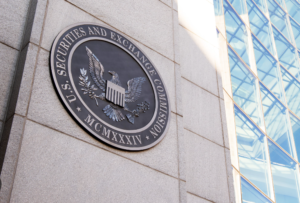$SPX $DJI $BTC
#stockmarket #WallStreet #investing #economy #finance #USD #consumer #retailsales #markets #trading #crypto #growth
The U.S. stock market continued its upward momentum for a second consecutive day, as investors grew more optimistic about the resilience of consumer spending. Despite retail sales in February coming in lower than economists had anticipated, they still marked an increase compared to the previous month. This growth—albeit modest—helped reassure markets that consumer demand remains intact, providing a crucial pillar of support for equities. Major indices such as the S&P 500 and the Dow Jones Industrial Average saw gains, reflecting the improving sentiment among investors who are balancing concerns over inflation, interest rates, and economic stability.
Retail sales data are closely watched as a key indicator of economic health, given that consumer spending accounts for nearly 70% of the U.S. economy. The latest figures suggested that while spending slowed slightly from expectations, it remained positive, signaling that consumers are still willing to buy despite lingering inflationary pressures. This trend aligns with recent earnings reports from major retailers, which have shown a mix of cost-conscious consumer behavior alongside persistent demand in certain segments, such as e-commerce and discretionary goods. The Federal Reserve is also closely monitoring these trends, as strong consumer spending could influence future interest rate decisions, impacting both financial markets and borrowing costs.
Bond markets and Federal Reserve policy expectations are also reacting to the latest retail sales data. Treasury yields remained relatively stable, as investors weighed the implications of continued consumer strength against the potential for prolonged higher interest rates. The Fed has maintained a cautious stance, emphasizing its data-dependent approach when considering rate adjustments for the remainder of the year. Strong retail spending could complicate the central bank’s goal of bringing inflation down to its long-term target, potentially delaying expected rate cuts. Equity markets, however, appear to be viewing the data through a more positive lens, as corporate earnings outlooks remain robust and economic resilience supports risk appetite.
Meanwhile, in the cryptocurrency market, Bitcoin and other digital assets have experienced volatility, reflecting broader macroeconomic trends. Investors in risk assets remain wary of shifting monetary policy expectations, but market sentiment in both traditional stocks and cryptocurrencies has improved as economic indicators continue pointing toward stability rather than downturn. While uncertainties remain—such as future Fed decisions, inflation risks, and geopolitical tensions—Wall Street’s current rally suggests that confidence in economic resilience remains strong, at least for now. Traders and analysts will be closely watching upcoming economic reports and Fed commentary to gauge whether markets can sustain this renewed momentum.











Comments are closed.